Perfidia
___________
page originally published on 8 September 2010; latest edit: 15 September 2022
___________
Perfidia (Alberto Domínguez Borrás) — The composer was better known as Alberto Domínguez
From Wikipedia:
 Perfidia (Spanish for “perfidy”, as in faithless, treacherous or false) is a popular song written by Alberto Domínguez (1911–1975), a Mexican composer and arranger born in the state of Chiapas, about love and betrayal. Aside from the original Spanish, other renditions exist, including English and instrumental versions. The English lyrics are by Milton Leeds.
Perfidia (Spanish for “perfidy”, as in faithless, treacherous or false) is a popular song written by Alberto Domínguez (1911–1975), a Mexican composer and arranger born in the state of Chiapas, about love and betrayal. Aside from the original Spanish, other renditions exist, including English and instrumental versions. The English lyrics are by Milton Leeds.
However, sheet music (right) for a version held by the Lilly Library at Indiana University in Bloomington Indiana, titled “Tonight (Perfidia)” and dated 1939, credits the English lyric to Xavier Cugat and Will Heagney. I believe the featured performer shown on the sheet music cover is incorrectly identified at the Indiana University digital entry. The image’s caption evidently reads “featured by Pancho on the Southwestern Serenade.” The Southwestern Serenade might have been a radio program.
 The existence of two separate English lyrics helps to explain the fact that the word “tonight” does not appear in the lyric of the most familiar English version. The memorable opening line of the chorus of the better-known version is “To you, my heart cries out Perfidia.” According to the Indiana University Digital Library catalog entry, in the lyric credited to Cugat and Heagney the first line of the chorus is “Tonight, I see a message in your eyes.”
The existence of two separate English lyrics helps to explain the fact that the word “tonight” does not appear in the lyric of the most familiar English version. The memorable opening line of the chorus of the better-known version is “To you, my heart cries out Perfidia.” According to the Indiana University Digital Library catalog entry, in the lyric credited to Cugat and Heagney the first line of the chorus is “Tonight, I see a message in your eyes.”
Although the lyric of the version titled “Tonight” is credited in part to Xavier Cugat, his 1940 hit, recorded in June 1939 as “Perfidia,” is an instrumental. In 1949 Tony Martin recorded the song under the title “Tonight” (see below), evidently using the lyric written by Xavier Cugat and Will Heagney.
______________________
Orquesta Hermanos Domínguez — According to the Discography of American Historical Recordings (DAHR), a recording of “Perfidia” by this band made “before 2/22/1939” was released in 1939 on the single Victor 75939, c/w “Chiapas.” I’ve placed this recording ahead of the one by Lupita Palomera immediately below because a.) DAHR gives the same date limit (“before 2/22/1939”) for each of them, and b.) the Victor catalog number of the Domínguez single is one digit lower than that of the Palomera single.
Recording not yet found
______________________
The San Cristobal Marimba Band, vocal: Lupita Palomera — According to RateYourMusic.com, the single (US) Victor 75940, b/w “Desprecio” was issued in 1938. However the following information provided elsewhere casts doubt on the 1938 release date:
- The Discography of American Historical Recordings indicates that the two sides of Victor 75940 were recorded “before 2/22/1939,” and that the single was released in 1939.
- A page from Billboard magazine dated 20 March 1948, under Advanced Record Releases (International: Latin-American), announces a single soon to be released by L. Palomera with the catalog number Victor 75940, and sides “Desprecio” and “Perfidia.”*
.
Xavier Cugat and his Waldorf-Astoria Orchestra — recorded on 12 June 1939; issued on Victor 26334, b/w “Nana”
The photo of Humphrey Bogart and Ingrid Bergman in the video refers to the use of the song in the film Casablanca (1942), where it is played as the couple dance in a Paris nightclub during a flashback sequence.
.
Glenn Miller and his Orchestra with vocalists Dorothy Claire and The Modernaires – 1941
.
 Tony Martin — “Tonight,” evidently featuring the English lyric written by Xavier Cugat and Will Heagney — recorded on 31 March 1949 and issued on the 78 rpm single Decca 3119, b/w “Fools Rush In”
Tony Martin — “Tonight,” evidently featuring the English lyric written by Xavier Cugat and Will Heagney — recorded on 31 March 1949 and issued on the 78 rpm single Decca 3119, b/w “Fools Rush In”
Thanks to @theinternetoflibraries for discovering that Tony Martin’s recording of the song under the title “Tonight” apparently features the English lyric written by Cugat and Heagney, and for letting me know of this find in a comment at the bottom of this page, dated 9 September 2017. From there it was quick work finding the recording on YouTube.
______________________
.
Lupita Palomera – 1955?
There seems to be a defect in the audio in the following video. The volume of the organ music jumps from low to high once or twice early in the recording. Volume modulation is an intended effect used often throughout, but especially at 15 seconds there appears to be a defect.
.
Nat King Cole – 1959 (en Español)
.
Raul de Barros — from the 1960 (some sites say 1961) album Sonho e animação em ritmo de dança, Odeon MOFB 3133
.
Wikipedia claims that the 1939 recording by Xavier Cugat which became a hit in 1940 was used in three films by director Wong Kar-wai (see comment exchange below), saying,
The song was published in 1939 and became a hit for Xavier Cugat in 1940. This version was used by director Wong Kar-wai in his films Days of Being Wild, In the Mood for Love, and 2046.
But the recording used in the following video, a tribute to the 1990 Wong Kar-wai film Days of Being Wild, has a very different arrangement than that of the 1940 1939 recording (see above). The sound quality and other aspects of the recording suggest that it’s from a considerably later date. The YouTube video provider indicates that the recording was released on the 1961 LP Viva Cugat! More significantly, a clip from Wong Kar Wai’s 2004 film 2046 that I’ve provided in a comment at the bottom of the page features the same much later recording in the soundtrack, not the 1939 recording.
Xavier Cugat and his Orchestra — from the 1961 album Viva Cugat!, Mercury PPS 6003 (Stereo), Mercury PPS 2003 (Mono)
.
The Shadows – recorded in October 1962; released on Out of the Shadows – 1963
.
Los Tres Caballeros – (en Español) undated – This Mexican trio “from the 50s and 60s” consisted of Leonel Galvez, Roberto Cantoral, and Chamin Correa.
.
Paul Mauriat et son grand orchestre – from the album Viva Mauriat, 1968
.
Chick Talli e seu Conjunto from the album Suavemente – date unknown – It is the first song of three in this medley, the others being Quiéreme Mucho and Frenesi (the last, also by Alberto Domínguez)
.
The Estrada Brothers – live 1991 (en Español)
- Estrada Brothers website: http://www.estradabrothers.com/
- YouTube channel: http://www.youtube.com/user/EstradaBrothers
.
Laura Fygi – (en Español) from her 2000 album The Latin Touch
.
Luis Miguel — third track on his 2001 album Mis Romances
.
* At the beginning of the “Advance Record Releases” article on page 33, the following explanation is provided :
Records listed are generally approximately two weeks in advance of actual release date. List is based on information supplied in advance by record companies. Only records of those manufacturers voluntarily supplying information are listed.

















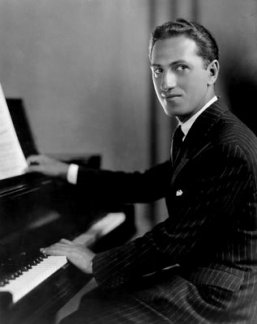

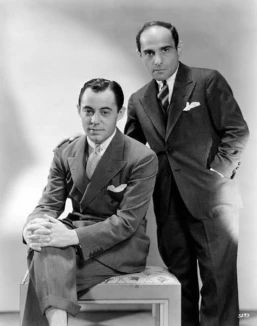

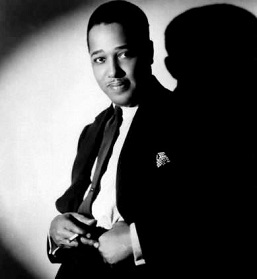


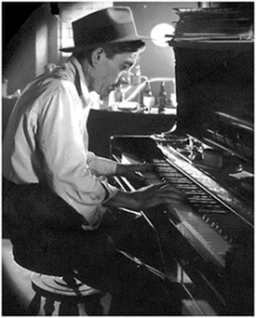
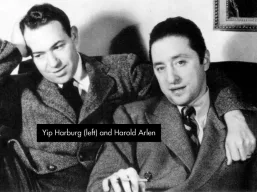
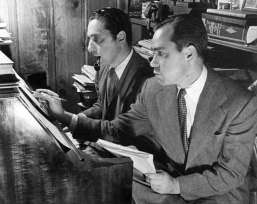



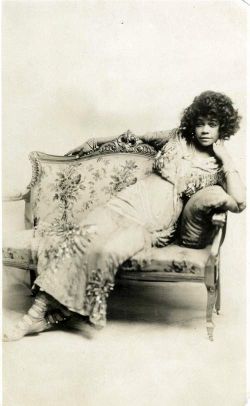





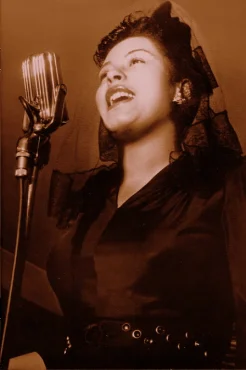




Jul 25, 2011 @ 11:18:25
Thanks for this page!
I love this song…
There is also an interesting play by Antonella Ruggiero: http://youtu.be/4ZLnjCuwvUU
LikeLiked by 1 person
Jul 25, 2011 @ 13:24:35
Emanuele, Very kind of you.
LikeLike
Dec 18, 2011 @ 10:11:36
Because of your words on this page: “Wikipedia claims….” I looked up http://en.wikipedia.org/wiki/Perfidia and noticed Wikipedia does not claim this. Maybe they did earlier but it has been changed. So you might want to remove that comment now, when it is no longer the case. Thank you for a very nice web site. I originally came here because of my interest in Chamin Correa and his band Los Tres Caballeros. Roger Johansson, Sweden.
LikeLiked by 1 person
Dec 18, 2011 @ 12:23:09
Roger,
Welcome. Thanks for the comment. From the end of the first paragraph of the Wikipedia page on the song Perfidia, I quote:
“The song was published in 1939 and became a hit for Xavier Cugat in 1940. This version was used by director Wong Kar-wai in his films Days of Being Wild, In the Mood for Love, and 2046.”
That’s three films, in which Wikipedia claims Wong Kar-wai used the 1939 Xavier Cugat version, which was the 1940 hit. I haven’t yet attempted to verify or dispute the claim. I only point out that the recording in the video is not from 1940, though it is evidently a Cugat recording.
Regards,
doc
LikeLike
Dec 18, 2011 @ 13:13:21
Here’s a clip from Wong Kar Wai’s 2004 film 2046, in which a later Cugat recording (probably from the 1961 LP Viva Cugat!) is used, not the 1939 recording:
LikeLike
Nov 17, 2012 @ 06:54:57
For heavens sake don’t miss out on Luis Miguel’s masterful interpretation!
LikeLiked by 1 person
Sep 13, 2015 @ 22:48:22
Hi Michael,
The Luis Miguel recording from his 2001 album Mis Romances has been added. I guess I forgot to tell you. Belated thanks for the suggestion.
LikeLike
Jul 25, 2014 @ 05:48:01
Does anyone know where I can buy the sheet music for the Luis Miguel rendition of “Perfidia?” I am not begging for a freebie. I like it enough to shell out the money for it. I just want to buy the right version. If anyone knows who’s selling that version, I would appreciate a heads up! Thanks in advance.
LikeLiked by 1 person
Mar 14, 2017 @ 07:42:39
Nice, but where are the lyrics? That’s what I was searching for, the ORIGINAL English lyrics to Perfidia.
LikeLiked by 1 person
Mar 14, 2017 @ 09:22:08
Hi Ernest,
I don’t have a copy of the alternate English lyric, the one credited to Xavier Cugat and Will Heagney, if that’s what you’re referring to. A page at the Indiana University Bloomington’s IN Harmony online sheet music catalog indicates that there is one copy of sheet music that contains the English lyric under the title “Tonight,” with alternate title “Perfidia,” dated 1939 and with the English lyric credited to Xavier Cugat and Will Heagney, available in the Lilly Library there. A note on the page seems to indicate that the sheet music isn’t available online.
Regards,
doc
LikeLike
Jun 17, 2017 @ 10:05:27
The most beautifully sung version of this song is by Javier Solis. Unsurpassed!
LikeLiked by 1 person
Sep 09, 2017 @ 12:08:38
Hi,
Was watching a new BBC documentary on Gluck and ‘Perfidia’ came on in the background. But the English lyrics were different to the commonly known and popular version, which immediately made me sit up and take notice: ‘Tonight I see a message in your eyes’…’You bring a glimpse of paradise’…’With the rhythm of a lovely melody I’m holding heaven in my arms.’ I used the Shazam app on my phone and the app ID’d this as the Tony Martin version. So, indeed, Tony Martin sings the rarer English lyrics.
LikeLiked by 1 person
Sep 09, 2017 @ 21:31:37
Hi @theinternetoflibraries,
Muchas gracias! Thank you so much for sharing that information. Yesterday was seven years since I published the original version of this page, and today you’ve handed me one big missing piece of the puzzle. With your help I quickly found the 1940 Tony Martin recording, evidently featuring the English lyric written by Xavier Cugat and Will Heagney. The recording has been added above, with a note above the video crediting you for the find, and for letting me know about it. Thanks again!
Regards,
doc
P.S. I’d looked for the Tony Martin recording before, but it hadn’t been available in the online video libraries that I use. Your tip served as a reminder to look again, and let me know why I should be looking for it again.🙂
LikeLiked by 1 person
Apr 12, 2019 @ 23:29:13
Does anyone know the name of the singer on the original 1939 recording of ‘Perfidia’?
LikeLiked by 1 person
Apr 13, 2019 @ 13:12:48
Hi Peter,
Which 1939 recording are you referring to?
According to the two sources that I’ve cited above, the song was recorded in 1937 by The San Cristobal Marimba Band, with vocalist Lupita Palomera. Palomera also recorded another version that I’d previously dated 1939, that may have actually been recorded in 1955. I’ve modified the page accordingly. Presently the only 1939 recording that I’m aware of is that by Xavier Cugat and his Waldorf-Astoria Orchestra, which is an instrumental.
SecondHandSongs.com (SHS) lists no other vocal recordings featuring the original Spanish lyric before 1952. The earliest vocal recording listed by SHS that features the English lyric by Milton Leeds is that by Benny Goodman and His Orchestra, with vocalist Helen Forrest, released in 1941.
Regards,
doc
LikeLike
Apr 24, 2020 @ 20:31:51
LikeLike
Sep 15, 2022 @ 06:20:03
Exquisite.
LikeLiked by 1 person